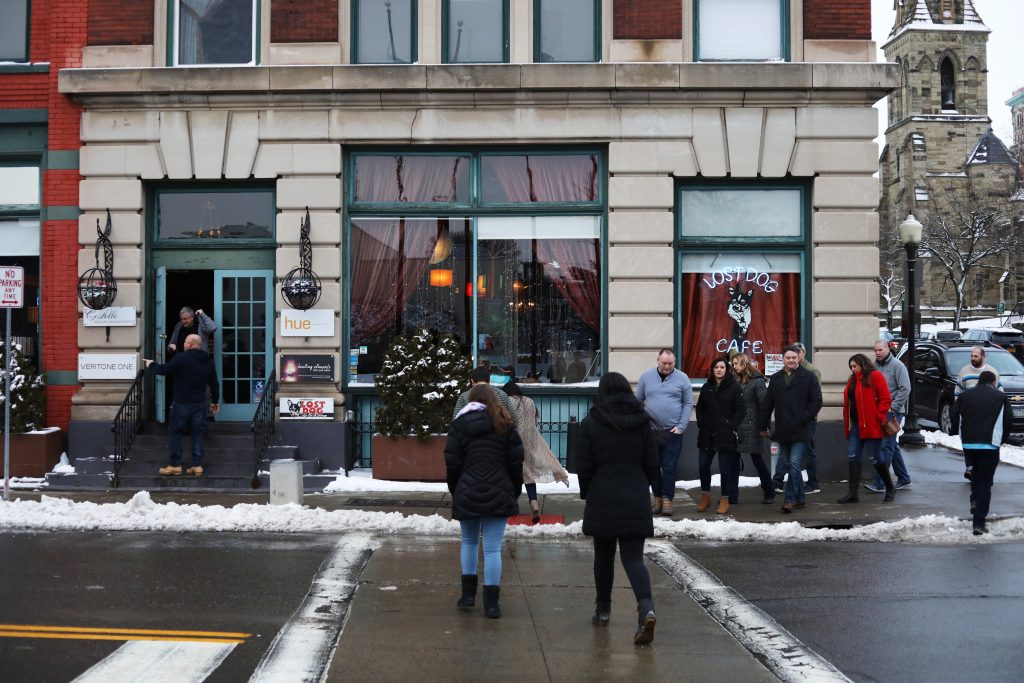The usual conversation at Lost Dog Cafe is probably not filled with talk of amphibians and ecology, but on Tuesday night those topics will be the spotlight.
The bar and restaurant is hosting “Science Pub BING: Pollutants, Parasites & People,” bringing in researchers from Binghamton University to have a casual conversation about science over drinks and food. According to its Facebook page, the event aims to connect scientific ideas with nontechnical audiences in an engaging way.
“[It is] [i]ntentionally informal, designed for both folks who classify themselves [as] ‘not really into science’ as well as science enthusiasts,” a flyer on the page read.
Kristine Kieswer, a freelance writer who lives in Montrose, Pennsylvania, is one of the “Science Pub BING” organizers. She previously lived in Richmond, Virginia, and attended similar events called “Science Pub RVA.” She said she wanted to organize one in Binghamton because of the growth she noticed at the University.
“[‘Science Pub RVA’] was always a favorite activity and I thought it might work in Binghamton as well,” Kieswer said. “I’ve been away for a few years and was really impressed to see how much it’s grown — especially the University. It seemed like a great time to give it a try … [Jessica] Hua even enlisted her students to share more about what they’re working on in the lab.”
The centerpiece of the event is Hua, head of a wetlands ecology laboratory and an assistant professor of biology, who will be giving a casual presentation on amphibians and the human effect on their ecosystem. Afterward, she will answer discussion questions.
Hua said her lab has done public outreach many times before, but the setting is what makes this event unique.
“My group has done similar events at schools, local club meetings [with] naturalist clubs and libraries, but never in a bar setting,” Hua said. “We’re excited to have this chance to connect with people we might not normally cross paths with.”
On a campus dedicated to student and faculty research, Hua said they have many opportunities to discuss important scientific topics with other academics, but not always with the general public which is also affected by environmental issues.
“My lab group works on topics that are directly related to human society, yet we often only have the chance to communicate our research to other scientists,” Hua said. “Events like these are wonderful because it gives us the opportunity to reach broader audiences who might also care and contribute to solving complex environmental issues.”
Cities across the country host events connecting science to the public, and Kieswer said they all tend to follow a similar concept and format.
“It goes by different names, but the concept is the same — bring people together in a nonacademic environment to discuss interesting science topics,” Kieswer said. “We drink, we dine, we debate. It’s a cool learning opportunity, plus the chance to get out on a Tuesday evening and meet new people.”
Ultimately, Hua boiled the entire event down to one question.
“My lab does the research, but if what we learn doesn’t reach the right people who can help enact positive change, what is the point of our work?” Hua said.



